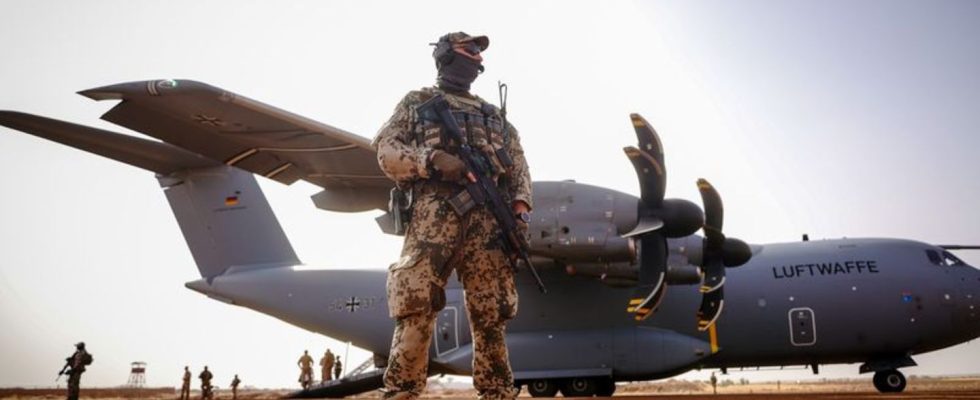Household
Armament instead of social benefits? Arguments about priorities
After Russia’s attack on Ukraine, the federal government set up a special fund worth 100 billion euros to make the inadequately equipped Bundeswehr capable of defending itself. photo
© Kay Nietfeld/dpa
The changed security situation after Russia’s attack on Ukraine requires a lot of money for the Bundeswehr. But the special fund set up for this purpose will be used up at the end of 2027. And then?
The coalition is vigorously debating whether and how the Bundeswehr will be able to operate solely from the general public from 2028 onwards Budget can be financed, just as Chancellor Olaf Scholz (SPD) intends. The FDP is calling for social spending to at least be frozen. The SPD chairwoman Saskia Esken and the Green parliamentary group leaders see this as an attack on the social systems and strictly reject the demand. Instead, Esken – contrary to Scholz – reiterates the SPD idea of taxing the rich more heavily.
What the SPD wants
“The Social Democrats are not prepared to curtail the social security of families with children, trainees and students or pensioners in order to finance the necessary spending on security and defense,” Esken told the newspapers of the Funke media group. But: “Germany is a rich country in which many very rich people live who can make a greater contribution to the common good and are sometimes willing to do so.”
What the Greens want
The Green Party leader Britta Haßelmann is rather skeptical about Scholz’s positioning. “We will not achieve the high sums that are necessary (for defense) through savings quotas for each department,” she told the “Süddeutsche Zeitung”. “It shouldn’t mean: armament or pension.”
The co-party leader Katharina Dröge argued similarly in the “Rheinische Post”. Haßelmann is therefore thinking about other financing options: “In addition to the discussion about reforming the debt brake, we also have to look for other options when it comes to special funds or investment companies in order to enable long-term investments.”
What the FDP wants
The FDP chief budget officer Otto Fricke insists on savings. “We have to stop always talking about priorities. We can only stabilize the budget if we also identify subordinate areas. But that requires more political courage,” Fricke told the “Rheinische Post”. “Social benefits represent by far the largest block of expenditure in the federal budget; in 2024 it will be around 46 percent of total expenditure,” he explained.
“It is important that their share does not increase any further and that there are no new benefits in order to have enough scope for the urgently needed economic turnaround.” Both are necessary: for Germany to continue to achieve NATO’s two percent quota for defense spending and at the same time to provide new impetus for more economic growth.
What the Chancellor is up to
After Russia’s attack on Ukraine in 2022, the federal government set up a special fund of 100 billion euros to make the inadequately equipped Bundeswehr capable of defending itself. This year, for the first time in decades, Germany can fulfill its NATO obligation to invest two percent of its economic output in defense.
“And it will stay that way in the coming years and decades,” promised the Chancellor in a video message published this weekend. However, the special fund expires in 2027. A week ago, Scholz told the “Süddeutsche”: “From 2028 onwards, we want to use the general budget to cover what is necessary to achieve the two percent target. It’s not easy, but we can manage it.”

